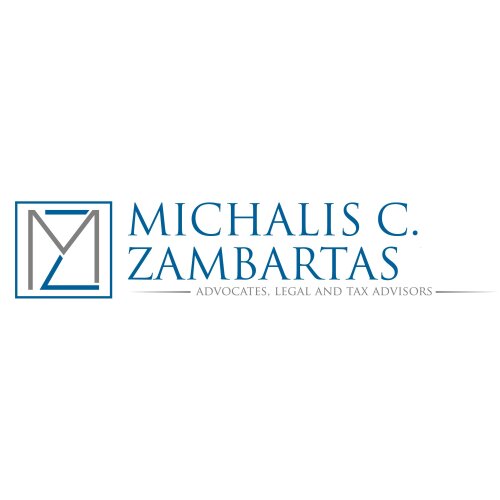Best Creditor Lawyers in Cyprus
Share your needs with us, get contacted by law firms.
Free. Takes 2 min.
Or refine your search by selecting a city:
List of the best lawyers in Cyprus

Michalis C. Zambartas - Advocates, Legal & Tax Advisors
30 minutes Free ConsultationAbout Creditor Law in Cyprus
Creditor law in Cyprus governs the rights and obligations of creditors, debtors, and any intermediaries involved in the financial transactions. Cyprus has a robust legal system that provides a framework for ensuring the rights of creditors are protected while maintaining fair practices. The system incorporates both local legislation and relevant EU regulations, and it plays a crucial role in resolving disputes, recovering debts, and managing insolvency proceedings.
Why You May Need a Lawyer
Individuals and businesses may require legal assistance in creditor law for a variety of reasons. Common situations include navigating debt recovery processes, handling disputes over unpaid invoices, dealing with bankruptcy or insolvency, and ensuring compliance with relevant laws when drafting contracts or agreements. A lawyer can help safeguard your interests, provide advice on legal strategies, and represent you in court if necessary.
Local Laws Overview
Cyprus has a set of local laws and regulations that impact creditors, notably the Bankruptcy Law (Cap. 5), the Companies Law (Cap. 113), and the Civil Procedure Rules. Key aspects include the hierarchy of creditors in insolvency cases, legal processes for debt recovery, and the enforcement of financial obligations. Understanding these laws is crucial for creditors to effectively enforce claims and protect their financial interests.
Frequently Asked Questions
What is the process for debt recovery in Cyprus?
Debt recovery typically involves sending a demand letter, negotiating a settlement, and possibly pursuing legal action through the courts. Lawyers can assist in navigating each step efficiently.
Can debts be recovered if the debtor is bankrupt?
In bankruptcy, debts may be settled based on the priority of claims. Secured creditors are often prioritized, but the outcome depends on the bankruptcy proceedings and available assets.
Are foreign creditors covered by Cyprus laws?
Yes, foreign creditors can file claims under Cyprus creditor laws, but may need to navigate additional legal complexities. Legal advice is recommended to understand jurisdictional issues.
What legal actions can be taken if a debtor refuses to pay?
If a debtor refuses to pay, creditors may take legal action such as filing a lawsuit for debt recovery, seeking court orders for asset seizure, or initiating insolvency proceedings.
How does Cyprus law protect creditors?
Cyprus law provides mechanisms for debt recovery, asset seizure, and legal recourse through the courts. The law ensures that creditors' rights are enforced effectively.
What needs to be included in a demand letter?
A demand letter should state the amount owed, deadline for payment, and consequences of non-compliance. It should be clear, concise, and may benefit from legal review.
How does insolvency affect creditor claims?
In insolvency, creditors must file claims which are managed based on priority. Secured creditors generally have priority, affecting the recovery rate of debts.
Are there time limits for debt recovery actions?
Yes, time limits apply, usually governed by the statute of limitations. It's important to act promptly and seek legal advice to avoid forfeiting claims.
What role does the court play in debt recovery?
The court can issue judgments, orders for asset seizure, or authorize insolvency proceedings, providing legal means to enforce creditor rights.
Can a lawyer help in drafting debt agreements?
Yes, a lawyer can help draft agreements that clearly stipulate terms, ensure compliance with laws, and offer protection in case of defaults.
Additional Resources
For more assistance, consider these resources:
- The Cyprus Bar Association offers referral services for qualified lawyers.
- The Ministry of Justice and Public Order provides insights into legal proceedings and resources for creditors.
- The European Consumer Centre Cyprus can assist with cross-border creditor issues within the EU.
Next Steps
If you require legal assistance in creditor matters, it is advisable to:
- Consult a lawyer specializing in creditor law to discuss your situation.
- Gather all relevant documents, including contracts, communication records, and invoices.
- Be prepared to discuss potential legal strategies and costs involved.
- Ensure you understand your rights and obligations as a creditor before proceeding with any legal actions.
Lawzana helps you find the best lawyers and law firms in Cyprus through a curated and pre-screened list of qualified legal professionals. Our platform offers rankings and detailed profiles of attorneys and law firms, allowing you to compare based on practice areas, including Creditor, experience, and client feedback.
Each profile includes a description of the firm's areas of practice, client reviews, team members and partners, year of establishment, spoken languages, office locations, contact information, social media presence, and any published articles or resources. Most firms on our platform speak English and are experienced in both local and international legal matters.
Get a quote from top-rated law firms in Cyprus — quickly, securely, and without unnecessary hassle.
Disclaimer:
The information provided on this page is for general informational purposes only and does not constitute legal advice. While we strive to ensure the accuracy and relevance of the content, legal information may change over time, and interpretations of the law can vary. You should always consult with a qualified legal professional for advice specific to your situation.
We disclaim all liability for actions taken or not taken based on the content of this page. If you believe any information is incorrect or outdated, please contact us, and we will review and update it where appropriate.
Browse creditor law firms by city in Cyprus
Refine your search by selecting a city.














